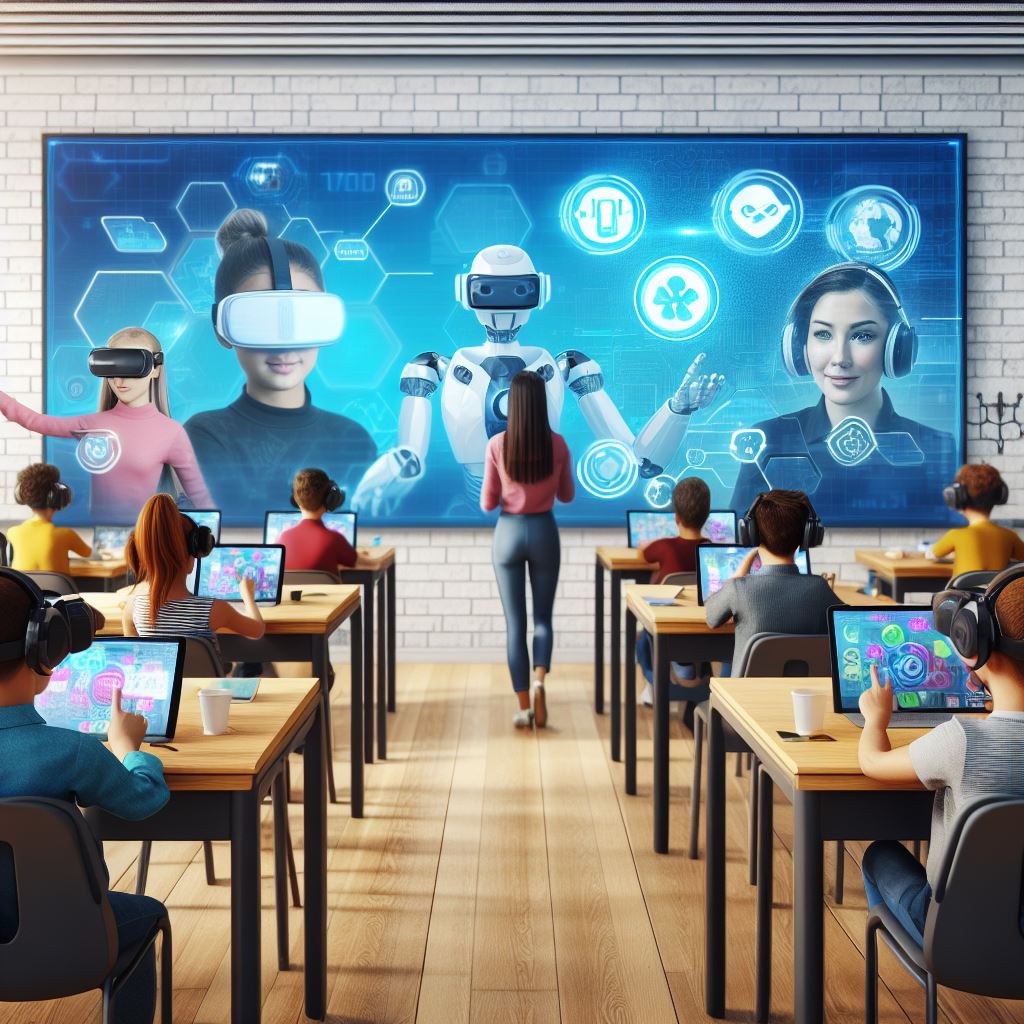
As the future unfolds, the intersection of education and technology promises an enlightening path for learning. This comprehensive analysis dives deep into the transformative potential of educational technology.
Geared towards educators, EdTech providers, policymakers, administrators, and even students and parents, this paper will explore the evolving landscape of EdTech, examining its merits, challenges, and monumental shift towards a student-centric approach.
The Current State of EdTech: Current Trends and Predictions
EdTech, or Educational Technology, has rapidly become a cornerstone of modern education. With the proliferation of Digital Education and Online Learning, it's evident that technology integration into the educational sector is no longer a luxury but a necessity.
Current Trends:
-
Blended Learning: A synergistic blend of traditional classroom teaching and online educational modules.
-
Adaptive Learning: Systems that customize materials in real-time to suit individual student needs.
-
Virtual Classrooms: Offering a mix of synchronous and asynchronous learning experiences, thereby reducing geographical barriers.
Future Predictions:
-
Enhanced focus on Remote Learning: The COVID-19 pandemic has showcased the need for robust digital education systems, a trend likely to persist and evolve (Daniel, 2020).
-
Integrating Augmented Reality (AR) and Virtual Reality (VR) into curricula paves the way for immersive learning experiences.
"The true purpose of education is to create possibilities for a child to invent and discover." - Jean Piaget. And this is precisely the opportunity EdTech offers.
Illustrating Success: Case Studies in EdTech Implementation
Case Study 1: The iPad in Classroom Interactions
Culén and Gasparini's pilot studies in 2011 identified the iPad as a promising classroom technology. Students and teachers engaged in a digital environment, improving interactive learning and curricular adaptability.
Case Study 2: Online Vs. Face-to-Face Credit Recovery
Heppen et al. (2017) explored the dynamics of online versus traditional learning modules for at-risk urban students. Their findings highlighted the pivotal role of tailored online interventions in bolstering algebraic understanding.
Navigating Challenges in EdTech Implementation
While the journey of integrating technology into education is promising, it's riddled with challenges:
-
Infrastructure Limitations: Not all educational institutions have the luxury of state-of-the-art tech facilities.
-
Skill Gaps: Many educators might not be tech-savvy, necessitating training programs.
-
Legal and Ethical Concerns: Ensuring data privacy and ethical considerations becomes paramount, especially in a digital-first environment.
EdTech's Pivotal Impact: Student Learning Outcomes and Engagement
The impact of EdTech on student engagement must be considered.
-
Enhanced Engagement: Multimedia and interactive modules make learning more appealing.
-
Customized Learning Paths: Adaptive learning ensures materials are attuned to a student's pace and capability.
-
Feedback Loops: Real-time assessments provide instant feedback, enabling continuous improvement.
As Means et al. (2009) eloquently put it, a balanced mix of online and offline educational practices drastically enhances the overall learning outcome, a testament to Technology Integration's potential in future education.
Crafting a Student-Centric EdTech Strategy
The seamless digital transition in education requires a student-centric approach. Here are key strategies to realize this:
-
Personalized Learning: Crafting curricula that resonate with individual learning styles.
-
Collaborative Platforms: Facilitate peer interactions, promoting a holistic learning environment.
-
Continuous Assessment: Leveraging technology to monitor and enhance student progress continuously.
"Education is not the learning of facts but the training of the mind to think." - Albert Einstein. The goal is to implement technology that aligns with this ethos.
Ethical Considerations in EdTech Implementation
UNESCO's 2021 report on post-COVID education emphasizes the need for legal and ethical considerations in EdTech. Respecting data privacy, ensuring accessibility to all, and preventing misuse are pivotal.
In Conclusion
As we gaze into the future, the confluence of technology and education hints at an exhilarating era of learning. The journey promises to be transformative, with challenges to surmount and immense potential to tap.
The goal is clear: a seamlessly integrated, student-centric educational future. Let's navigate this brave new world together.
References:
- UNESCO. (2021). Education in a post-COVID world: Nine ideas for public action. Paris: UNESCO.
- Means, B., Toyama, Y., Murphy, R., Bakia, M., & Jones, K. (2009). Evaluation of Evidence-Based Practices in Online Learning: A Meta-Analysis and Review of Online Learning Studies. U.S. Department of Education.
- Heppen, J. B., Sorensen, N., Allensworth, E., Walters, K., Rickles, J., Taylor, S. S., & Michelman, V. (2017). The struggle to pass algebra: Online vs. face-to-face credit recovery for at-risk urban students. Journal of Research on Educational Effectiveness, 10(2), 272-296.
- Culén, A. L., & Gasparini, A. (2011, June). iPad: a new classroom technology? A report from two pilot studies. In IFIP Conference on Human-Computer Interaction (pp. 423-426). Springer, Berlin, Heidelberg.
- Daniel, J. (2020). Education and the COVID-19 pandemic. Prospects, 49, 91–96.





